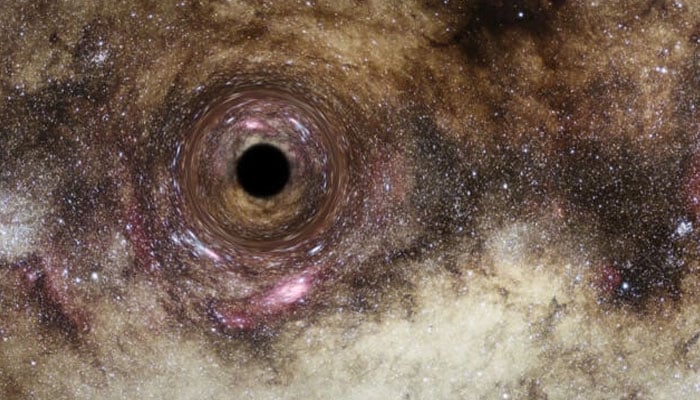Chinese scientists simulate black holes via quantum computing
A black hole is an area of space where gravity is so intense that even light cannot escape
Stephen Hawking, the legendary astrophysicist, made waves in the field of science with his findings about black holes, and to this day, those findings are helping scientists take a step closer to finding more answers about these mysterious cosmic bodies.
Recently, a team of scientists led by Chinese researchers suggested that the physics of black holes has reportedly been modelled using quantum computing.
According to the researchers, the Hawking radiation experiments paved the way for superconducting quantum chips to simulate the quantum effects of black holes and represented "a step towards building quantum systems with properties similar to those of black holes."
A black hole is an area of space where gravity is so intense that even light cannot escape. It is impossible to escape once a particle enters a black hole's horizon because the horizon forbids the particle from turning around, the South China Morning Post reported.
The team discovered that quantum effects cause particles inside black holes to escape, releasing Hawking radiation, which causes the black hole to lose energy and disintegrate.
"This newly constructed analogue black hole then facilitates further investigations of other related problems of the black hole," the researchers from the Chinese Academy of Sciences, Tianjin University, the Beijing Academy of Quantum Information Sciences, and the RIKEN Cluster for Pioneering Research in Japan said in their findings published in the peer-reviewed journal Nature Communications this month.
According to the team, it was challenging to test these effects through experiments because they were so weak, despite the fact that it was challenging to directly observe the quantum effect of a genuine black hole in astrophysics.
In recent years, experiments utilising optical metamaterials, light, Bose-Einstein condensates, which is a state of matter where all of the constituent particles are at their lowest energies, shallow water waves, and condensed matter have all been conducted to test the theory.
In the most recent experiment to observe analogue Hawking radiation, the group created a superconducting processor made up of a chain of 10 qubits with interaction couplings controlled by nine tunable couplers.
The Chinese Academy of Sciences' Institute of Theoretical Physics claims that quasiparticles inside analogue black holes radiate through the event horizon, satisfying Hawking radiation properties. Measurements of qubits outside the horizon confirm this behaviour.
"Our results would stimulate more interest in exploring the related features of black holes using a programmable superconducting processor with tunable couplers," the team wrote.
-
Archaeologists recreate 3,500-year-old Egyptian perfumes for modern museums
-
Smartphones in orbit? NASA’s Crew-12 and Artemis II missions to use latest mobile tech
-
Rare deep-sea discovery: ‘School bus-size’ phantom jellyfish spotted in Argentina
-
NASA eyes March moon mission launch following test run setbacks
-
February offers 8 must-see sky events including rare eclipse and planet parade
-
New study reveals biodegradable chip aims to reduce e-waste and air pollution
-
Scientists unveil new robotic mission for the moon
-
NASA reschedules Artemis II rehearsal due to Florida arctic outbreak












